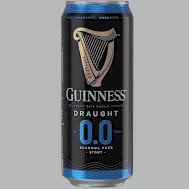Monday, 4 April 2022
Onshore Wind Farms
Saturday, 16 October 2021
15,215 days to the end of oil
1,459,013,978,422 barrels of oil left when I started this post. 1,459,013,757,364 barrels left when I finished.
15,215 days is 42 years. And a few days. What then?
Coal has longer to go: 148,329 days
Apparently 1,748,707,614,456 Megawatts of solar energy struck the earth so far today. Grab a bit of that and we'll be fine.
Yep, I'm back on worldometers.info and browsing aimlessly.
At the start of this post, China's population was 1,439,323,776. According to https://www.worldometers.info/world-population/population-by-country/. There's a guy out there counting. Here comes another... Surprisingly, the Chinese rate of growth is declining; 20 million extra in 1990, 13 million in 1995, 8 million in 2005, just 5.5 million in 2020. The fertility rate (the number of children a woman has on average) was 6.3 in 1970 and is now 1.69. 1.7 is generally regarded as the benchmark for a stable population size.
Thursday, 14 October 2021
The Lights are On
- Malaysian company YTL Corporation Berhad owns all of Wessex Water
- Cheung Kong Group, a multinational registered in the Cayman Islands run by family of Li Ka Shing (Hong Kong’s richest person) owns 80% of Northumbrian Water
- Between Germany’s Deutsche Asset Management and US private equity company Corsair Capital, they own half of Yorkshire Water
- MTR, a Hong Kong company, holds a 30 per cent stake in South Western Railway, and has been awarded the London Crossrail franchise.
Wednesday, 29 September 2021
News from the Front
Saturday, 25 September 2021
See Oh Two
Thursday, 23 September 2021
Broken markets
The electricity market place has sustained a bit of a collapse. I have first hand experience of two of the suppliers which have recently gone bust.
I signed up to lookaftermybills, a super-comparison web site which finds the cheapest electricity supplier for you, makes the switch for you from your current supplier without you having to raise a finger and, every subsequent year, repeats the process. A great idea. In theory. My problem was that, after the first year, the switch from Utility Point to Green Energy, the companies identified by the site, did not go smoothly. In fact it did not actually happen at all. And involved me doing all the communication. In the end I gave up on the process and renewed my contract with Utility Point.
Subsequently there were numerous hikes of the electricity price until I received the news that Utility Point had gone bust. Unexpected but not surprised. Yesterday Green Energy followed suit.
The regulator Ofgem has a protocol in place which deals with situations such as this and I am now back with French-owned EDF, which was my supplier before I got involved with lookaftermybills. Full circle. But, if Ofgem anticipated this happening (which they must have done to have established the scheme) why did they allow it happen?
These companies - there were at one point 99 of them, which the government defines as "a competitive market" - don't actually make any electricity, they just trade in it as a commodity: buy wholesale, sell retail, pocket the margin. Like all such markets, prices are volatile and if wholesale prices go up steeply, as gas prices have done recently (these companies typically supply gas and electricity) then a company can be in trouble. A "competitive market" essentially means a race to the bottom in prices to the customer, to get your share of the market (28 million domestic customers), because price is the only relevant determinant for the customer. Electricity is not like pizza, where quality matters as well as price. It's inevitable that this will lead to company failures.
I know full well the arguments against state control of utilities, because I grew up at a time when "nationalised" became a dirty word but privatisation of an essential national function always seemed illogical to me and it's now unarguable that the consequences can be negative. It seems likely that the 99 companies will in time be reduced to a small number, thus rolling back the whole process.
I'm happy to be back with EDF. I don't like them, don't dislike them, but if it stops me having to think about "what next?" and perhaps costs me a few pounds a month more than I could find elsewhere, I'll live with that. Cheapest is not always best.






